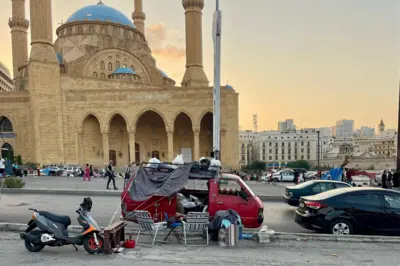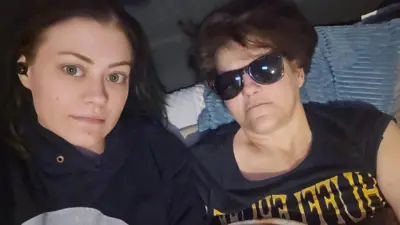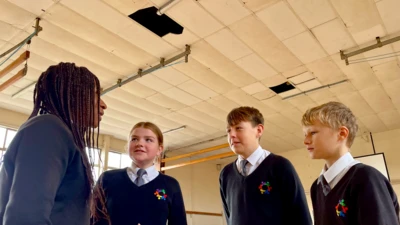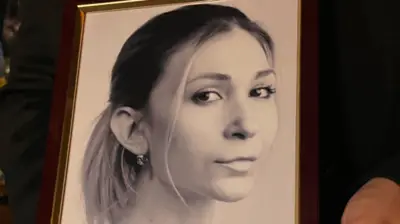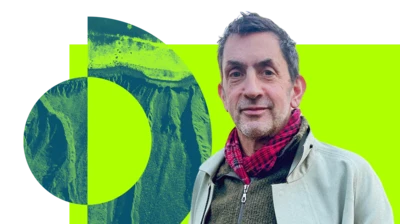We've updated our Privacy and Cookies Policy
We've made some important changes to our Privacy and Cookies Policy and we want you to know what this means for you and your data.
Taylor Wessing Prize: Shortlist unveiled for photography award
Image source, Clementine Schneidermann
Images of elderly people hanging out their washing during the Covid-19 lockdown have been nominated for a prestigious photography prize.
Two of ClΓ©mentine Schneidermann's portraits from her series Laundry Day are among the works shortlisted for the Taylor Wessing Prize.
Alexander Komenda and Haneem Christian were also nominated from entries submitted by 1,700 photographers.
The winner will be announced on 25 October.
The award is organised by the National Portrait Gallery in London, but it will not host the photographs this year as it is closed for major redevelopment works.
Instead, the shortlisted works will be displayed in an exhibition at Cromwell Place, a new arts hub in South Kensington, London, from the 27 October until 18 December 2022.
A panel of judges selected the shortlisted works from 4,462 entries from 1,697 photographers.
The winner of the first prize will receive Β£15,000. The second prize-winner receives Β£3,000 and the third prize Β£2,000.
Dr Nicholas Cullinan, Director National Portrait Gallery, said: "Congratulations to the shortlisted photographers; once again, this year's entries demonstrate the outstanding level at which photographers across the world are working."
The nominated photographers are:
Alexander Komenda
Image source, Alexander Komenda
Alexander Komenda is a Polish-Canadian documentary photographer and artist, whose work focuses on revealing the nuances of everyday life.
His interests in identity and collective memory are "utilised in his practice in order to explore the boundaries between unity and division in relation to his subjects", the gallery said.
Zahid's Son forms part of Komenda's ongoing series, The Lost Enchiridion of the Fergana Valley.
It examines identity and the post-imperialist landscape of the Fergana Valley, which spreads across Uzbekistan, Kyrgyzstan and Tajikistan.
Komenda's portrait depicts the son of Zahid, an Uzbek friend working in human rights in Osh, Kyrgyzstan, and sees the young sitter at home, holding a pet rabbit.
Those who live in the Fergana Valley are still living with the legacy of its Soviet past, and in southern Kyrgyzstan, Uzbek people continue to face significant marginalisation, the gallery noted.
The artist recalled a conversation with Zahid, in which he said, "as Uzbeks, my children could never become president or be in positions of government".
ClΓ©mentine Schneidermann
Image source, Clementine Schneidermann
ClΓ©mentine Schneidermann is a French photographer, living and working between Paris and south Wales.
With a focus on being a social documentary photographer, she has a particular interest in communities.
Schneidermann's portraits from her series Laundry Day depict the artist's own neighbour, hanging laundry in the garden of her home in South Wales.
The images "document micro-events which deal with the passage of time through the small moments of our daily lives," Schneidermann commented.
The photographer intended to capture the everyday by honing in on one daily chore.
The socially distanced portraits are part of a series of works taken during times of quarantine, self-isolation, and national lockdowns prompted by the Covid-19 pandemic.
Haneem Christian
Image source, Haneem Christian
Image source, Haneem Christian
Haneem Christian is a photographer and activist, who was born and raised in Cape Town, South Africa.
Christian studied Gender Studies and Environmental and Geographical Sciences at the University of Cape Town, and takes photographs focusing on "representation within the black and brown LGBT community", the National Portrait Gallery said.
Mother and Daughter and Rooted, Christian's two entries, are photographic works from two separate series that explore "queerness and transness in relation to family, race and identity", it added.
Mother and Daughter depicts two people who are not biologically related, but instead are both trans feminine artists from Cape Town, South Africa.
Christian said the photograph explores the relationship between the two, and questions "what it means to be a mother to a child who you have chosen and has chosen you" and is "a celebration of the family we choose".
Rooted, meanwhile, depicts a figure laying back and gazing straight into the camera, and Christian said it "honours the journey of returning to the Self by seeing yourself through the eyes of a loved one".
All images subject to copyright.
Top Stories
More to explore
Most read
Content is not available


